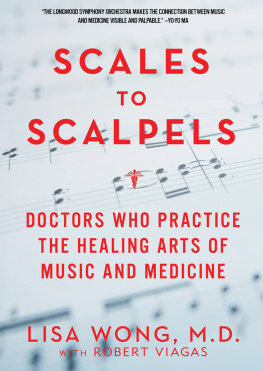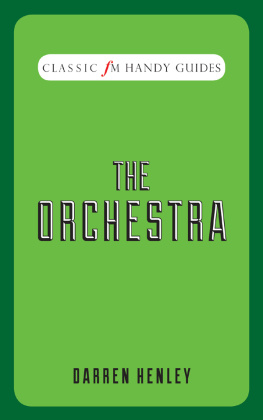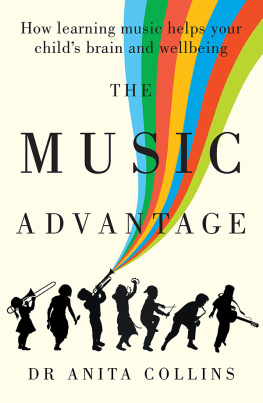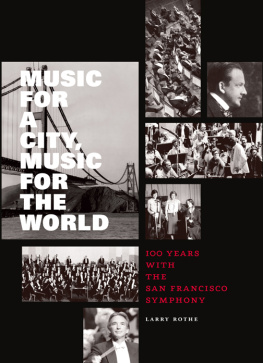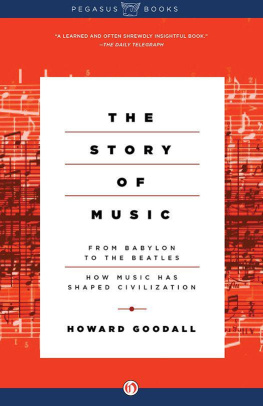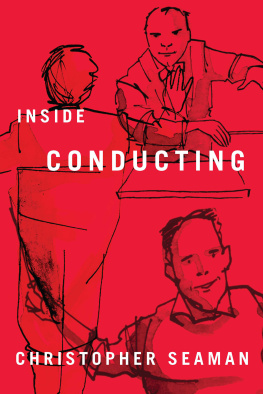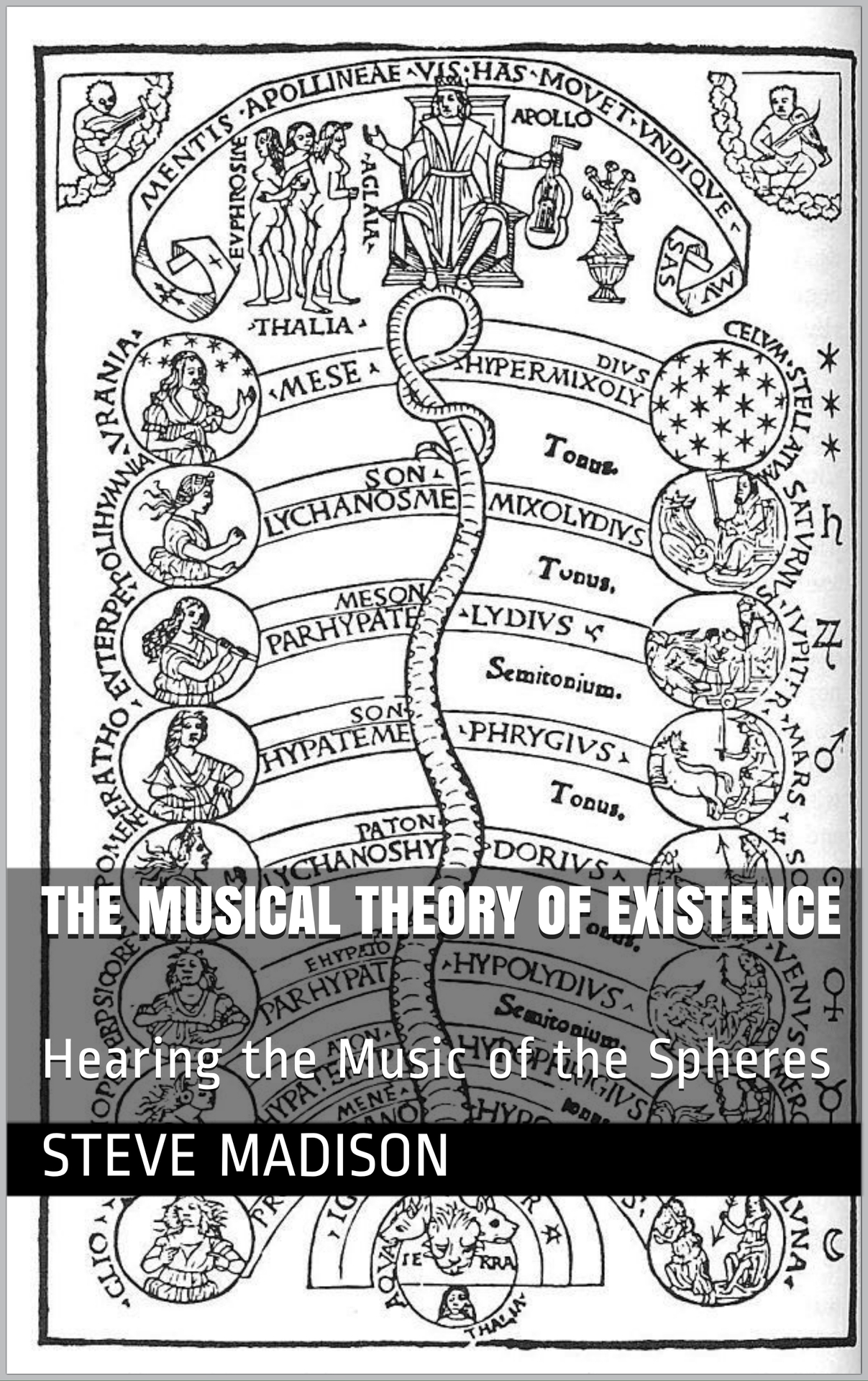The Musical Theory of Existence
Hearing the Music of the Spheres
Steve Madison
Copyright Steve Madison 2020
All rights reserved.
Table of Contents
Mind Music
Without music, life would be a mistake. Friedrich Nietzsche
I s the mind the ultimate musical instrument? Is the world a unique symphony composed by the World Mind, a symphony so extraordinary that it has been rendered physical, available to all of our senses and not just to our ears? Are atoms actually physical notes? Chemistrys Periodic Table would then be a musical scale of the elements, and the laws of ontological music would determine what and how the elements can combine. Is the material world actually music that is enormously slowed down or frozen? Is it just low-frequency music, inaudible to our ears (infrasound)? Are quantum mechanical wavefunctions really musical functions, made of countless blended notes? They play music all the time, but our ears arent attuned to this kind of music.
Imagine the most special of pianos. This exceptional piano has been reduced to nothing but a keyboard one that can play any possible note . The keys of this piano are eternal. They have compulsory existence. They are the very foundation of existence. In fact, they are the only things that have Being, i.e. fundamental reality.
This piano wouldnt be of much use if it had no one to play it. Well then, who does play it? If we were the philosopher Plato, we would say that a Cosmic Being the Demiurge is the piano player. But then we have to explain the existence of the Demiurge as well as that of the piano, and we have thereby created a problematic dualism: there are two types of things in this system the piano and the piano player. Do we actually need an external Being, an external player? Why cant the system operate on its own? Theres nothing to stop the piano playing itself. Such a thing already exists. Its called a pianola . A pianola is a mechanical piano that uses a roll of perforated paper to operate its keys, hence can dispense with the services of an external pianist.
The type of piano we are contemplating in our thought experiment is much more sophisticated than a mechanical piano. Its a living piano. It spontaneously, automatically, naturally, habitually plays itself and it is actually trying to understand itself via the music it plays. After all, its music is all it has with which to comprehend itself. Music is its only output.
The living piano experiences its own music. It feels pleasure when it plays well and pain when it plays badly. It tries to make more and more of the music it likes, and to get rid of all the music it doesnt like. It learns from its mistakes. It learns what it likes and wants more of, and equally what it dislikes and wants less of. It thereby takes on a character, a distinct way of doing things, a clear pattern of behavior a personality .
Every such piano is different. These pianos all develop differently. Each piano is unique, playing its own unique songs, its own soul music.
Imagine a whole world of these pianos, a world comprised only of these pianos. There is literally nothing else. Each is a self-playing piano, playing its own compositions.
Lets imagine that none of these living pianos can hear the work of any other piano. Each piano is on its own, playing its own music and learning strictly from its own work. Each is a private music domain. If one of these living pianos is going to become a better musician, it will have to do it all by itself. Some might learn fast. However, we can imagine that many pianos will take an age to learn how to properly play themselves, to produce the results they really want. Getting good at anything is hard work, and hard work for most creatures is painful. They avoid it. The path of least resistance is the path most creatures like to take.
Now imagine an alternative scenario. Imagine that all these different pianos can in fact listen to each other, can play together, can create joint compositions, can learn from each other, copy each other, collaborate with each other.
We now have two interacting systems: a private domain and a public domain. In the private domain, each piano does its own thing. It plays its own music, hears its own music, learns from its own music, and tries to make its own music better. It dreams, of course, of producing the perfect music that will be so good that it will make it feel like a god, and explain its own existence to itself. But this private domain offers such slow progress. Theres no multiplier factor to speed things up. Its all down to the individual and how fast, or otherwise, the individual is at learning.
In the public domain, by contrast, all the pianos are playing together. They can all hear each other, they can all hear plenty of what works and what doesnt, and they can rapidly learn from each other. They can hear and create vastly more and grander music than they could ever have composed on their own. Think of the difference between a soloist, no matter how brilliant, and an enormous orchestra, full of every possible instrument and expertise. Even the finest soloist will want to be informed by others. It will make the soloist shine all the more brightly.
In this public domain, progress is potentially much, much faster than in the private domain since every player is exposed to much more music, and to many more musical influences, possibilities and experiments.
Yet the public domain has its own drawbacks. Theres a drastic danger of discord. All of the pianos might play out of tune, disharmoniously, discordantly. Everything might clash. This could be the worst music ever.
Or perhaps the public system will produce a lowest common denominator music muzak bland, dull, banal, unadventurous, average, merely competent, but with none of the great virtuoso potential of music ever coming to fruition.
Or perhaps the public system will generate competing music two rival orchestras, lets say, playing two totally different symphonies. Each individual piano will have to choose which collective orchestra it joins, which symphony it signs up to. If it joins one orchestra, its out of tune with the other, in conflict with the other, and causing pain and even hatred amongst the pianos playing the rival symphony.
Or perhaps the public system produces a totalitarian, authoritarian music, with which everyone has to join in or face ostracism.
Or perhaps the public system is taken over by a small, dominant elite and everyone else has to dance to their tune and fit in with their music, whether they like it or not.
So, the public domain although it offers the chance to make speedy progress also offers the potential for conflict and disharmony on a truly grand scale, and thus for much slower progress. The pain in the public domain can be much worse than it is in the private domain.
How can the public music possibly get better given how much conflict is likely? How can the collective music be optimized? It would require some methodical process to slowly push it towards the perfection it contains within it, waiting to be released. What would such a process be, a process to take us from total public discord to total public harmony?
How about the Dialectic? We start with one song the thesis . Some pianos like this and join in with it to amplify it. Other pianos dont like it and play a song with opposite properties the antithesis . A bitter musical war breaks out between the two competing songs. Each tries to drown out the other. Gradually, other, neutral pianos see virtues in each of the two rival songs and compose a new song, combining elements of both. This is the synthesis song. Yet it also functions as a new thesis, higher than the previous starting thesis because it contains elements of its rival. However, like any thesis, it generates an antithesis, and thus the process is repeated all over again. A new synthesis is required, which, again, will raise the thesis song to a higher level.


